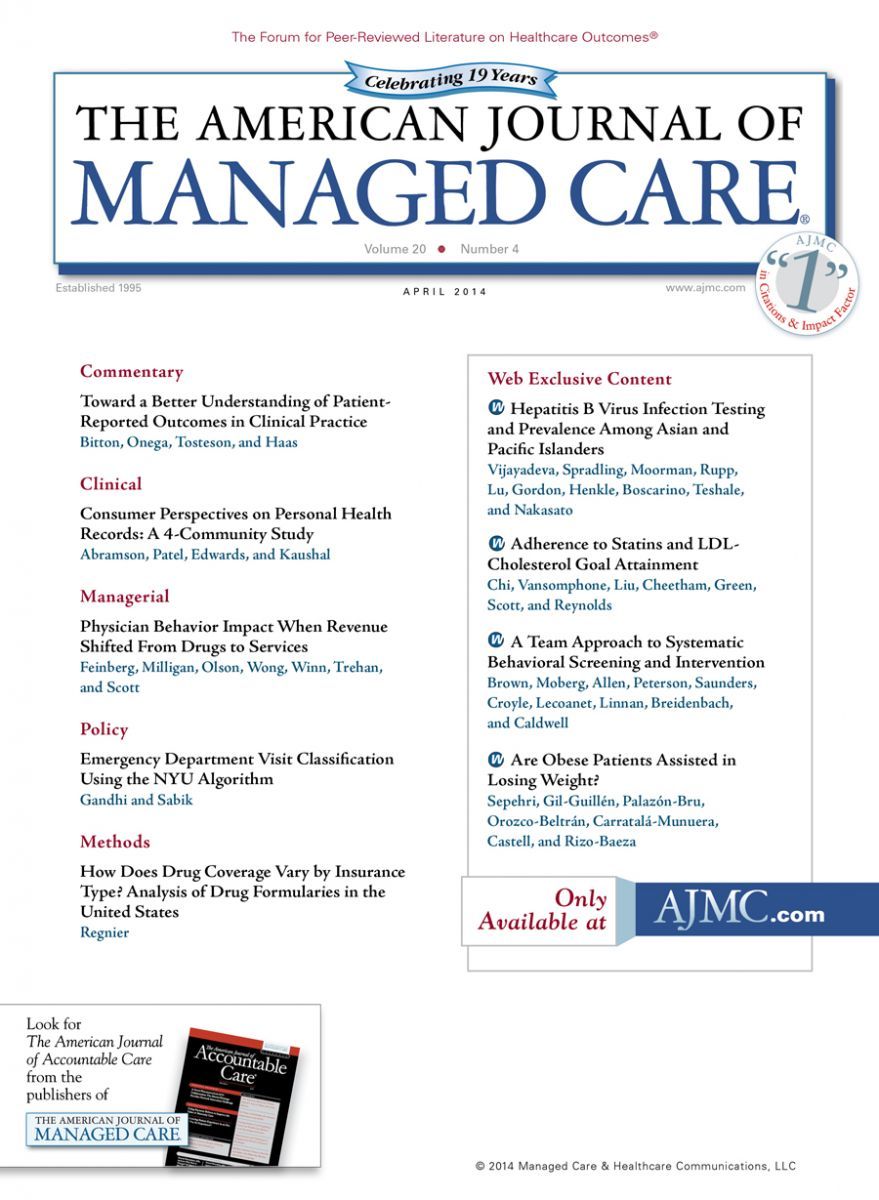- Center on Health Equity & Access
- Clinical
- Health Care Cost
- Health Care Delivery
- Insurance
- Policy
- Technology
- Value-Based Care
A Novel Approach to Minimizing Adverse Incentivization in Healthcare Payment Systems
Current healthcare payment systems in the United States are all plagued by the problem of adverse incentivization. A more efficient system would be one which leaves billing entities uncertain of how a given patient encounter will be reimbursed.
- Current healthcare payment systems in the United States are all plagued by the problem of adverse incentivization.
- Capitated systems encourage providers to underutilize resources so as to maximize profit, potentially limiting patients’ access to useful medications or procedures.
- Fee-for-service systems encourage providers to overutilize resources, perversely rewarding poor outcomes that require subsequent costly treatment.
- A more efficient system, which to my knowledge has not previously been proposed, would be one which leaves billing entities uncertain of how a given patient encounter will be reimbursed.
TO THE EDITORS:
Current payment systems in United States healthcare are plagued by the problem of adverse incentivization. Capitated systems encourage providers to underutilize resources so as to maximize profit, potentially limiting patients’ access to useful medications or procedures. Fee-for-service systems encourage providers to overutilize resources, straining an already bloated healthcare budget and perversely rewarding poor outcomes that require subsequent costly treatment. A recently proposed reimbursement system—the accountable care organization (ACO)—seeks to mitigate the magnitude of adverse incentivization by combining system-wide capitation with provider-level quality and safety benchmarks.
While ongoing efforts to simultaneously maximize healthcare quality and minimize cost are to be applauded, early experiences from ACO trial sites have yielded mixed results.1 The ACO model may be equally unable to yield an optimal balance of quality and cost as traditional reimbursement models because, like those systems it is designed to replace, it fails to directly address the economic reasoning of ground-level healthcare providers. Savvy billing entities (providers, provider networks, or entire healthcare systems) with a comprehensive understanding of any reimbursement system will utilize that understanding to maximize profit within that system. It is the a priori knowledge of the reimbursement scheme’s methodology that creates a financial incentive for either underprovision or overprovision of care.
A more efficient system, which to my knowledge has not previously been proposed, would be one which leaves billing entities uncertain of how a given patient encounter will be reimbursed until after that encounter has been concluded. In such a system, a neutral and blinded third-party organization would randomly assign closed patient encounters to either fee-for-service payment or capitated payment. Because providers would not have been cognizant of the reimbursement scheme at the time of care provision, the only incentive for providers at point of contact would have been to provide the best and most judicious possible care to the patient.
Such a system, while purely theoretical, would not be prohibitively difficult to implement, as it could be built upon existing payment schemes. The system would be highly dependent upon the existence of a neutral and trustworthy third-party organization to adjudicate claims, but the underlying relationships between payers and providers would not need to be drastically altered. Until the issue of adverse incentivization is addressed at a more fundamental level, currently envisioned payment schemes may, by design, continue to yield suboptimal outcomes.Author Affiliations: Department of Surgery, University of Colorado- Denver, Aurora, CO.
Source of Funding: None reported.
Author Disclosures: The author reports no relationship or financial interest with any entity that would pose a conflict of interest with the subject matter of this article.
Authorship Information: Concept and design; drafting of the manuscript; critical revision of the manuscript for important intellectual content.
Address correspondence to: David Paul Kuwayama, MD, MPA, Department of Surgery, University of Colorado-Denver, 12631 E 17th Ave, Mail Stop C312, Aurora, CO 80045. E-mail: david.kuwayama@ucdenver .edu1. Centers for Medicare & Medicaid Services. Pioneer Accountable Care Organizations succeed in improving care, lowering costs. http://www.cms.gov/Newsroom/MediaReleaseDatabase/Press- Releases/2013-Press-Releases-Items/2013-07-16.html. Published July 16, 2013. Accessed October 21, 2013.

Quality of Life: The Pending Outcome in Idiopathic Pulmonary Fibrosis
February 6th 2026Because evidence gaps in idiopathic pulmonary fibrosis research hinder demonstration of antifibrotic therapies’ impact on patient quality of life (QOL), integrating validated health-related QOL measures into trials is urgently needed.
Read More
Blister Packs May Help Solve Medication Adherence Challenges and Lower Health Care Costs
June 10th 2025Julia Lucaci, PharmD, MS, of Becton, Dickinson and Company, discusses the benefits of blister packaging for chronic medications, advocating for payer incentives to boost medication adherence and improve health outcomes.
Listen

